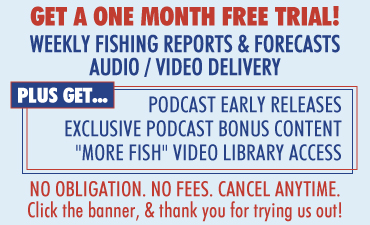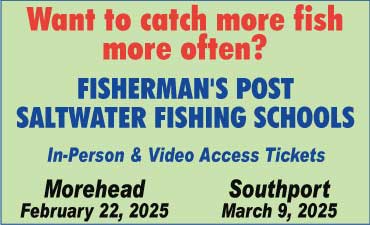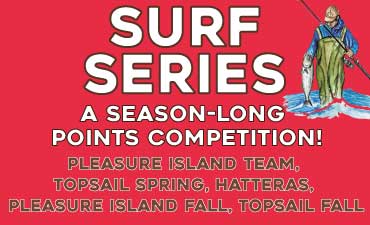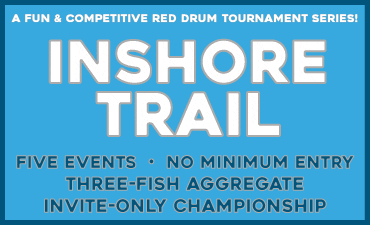Releases – November 2020
In a press release from the US Department of Justice, the DOJ announced that a North Carolina seafood processor pleaded guilty to selling at least $250,000 retail market value of mislabeled foreign crabmeat to small seafood retailers and restaurants.
Jeffrey A. Styron, treasurer of the corporate board of officers for Garland F. Fulcher Seafood Co., pleaded guilty before U.S. District Judge James C. Dever III in the Eastern District of North Carolina that his company, at his direction, falsely labeled the foreign crabmeat as “Product of USA,” according to the Department of Justice.
As treasurer, Styron was responsible for overseeing the daily operations of the company’s crab-related business, which involved managing and directing employees of the company with respect to the processing, packaging, and labeling of crab meat. Styron pleaded guilty to a one-count information charging him with substituting foreign crabmeat for domestic blue crab and, as part of the plea, Styron admitted to falsely labeling crabmeat with a retail market value of at least $250,000 dollars, which was sold primarily to small seafood retailers and restaurants.
“Blue crabs are a classic American seafood product and a vital resource for coastal communities in North Carolina, Virginia, Maryland, and other parts of the United States,” said Assistant Attorney General Jeffrey Bossert Clark for the Justice Department’s Environment and Natural Resources Division. “This investigation is part of the department’s mission to work with our law enforcement partners in the protection of Atlantic blue crab populations and other marine resources.”
As part of his guilty plea, Styron admitted that he and his company could not and did not process sufficient quantities of domestic blue crab to meet customer demands. To make up the shortfall, Styron and his company used foreign crabmeat to fulfill customer orders. During the periods when the company did not have a sufficient supply of domestic crab, Styron and Garland Fulcher purchased crabmeat (not live crabs) from South America and Asia.
As part of the guilty plea, Styron further admitted that beginning at least as early as Jan. 1, 2014, and continuing through Dec. 31, 2017, he directed company employees to repack foreign crabmeat into containers labeled “Product of USA,” which Garland Fulcher then sold to customers as “backfin,” “claw,” “lump,” “jumbo lump,” or “special,” domestically-harvested blue crab meat.
Yet, Styron contradicted these statements by the Justice Department in an interview with National Fisherman telling the author, “This was a one-time mistake, not a long-term venture as suggested by federal authorities,” Styron says. “I should pay the price for what I did, but not for what didn’t happen.”
Styron claims in the interview that the “timeline and the scope of the offense claimed by federal officials is far from accurate. We found ourselves unable to fulfill orders for domestic crabmeat over a six-week period in 2014, and unfortunately, I made a bad decision.”
Styron goes on to further state that it was simply a “bad decision” to use the wrong containers. According to Styron, during this six-week period over Christmas, there was “a hot demand” for the product, and he ran out of the containers used for imported crabmeat. To meet that demand, he admits to substituting crabmeat from Mexico, Indonesia, and Venezuela for domestic product.
“I ran out of the containers we use for imported crabmeat and used containers marked as “Product of the USA.” If I had the correct containers, this never would have happened,” says Styron.
However, US Attorney Robert J. Higdon, Jr. for the Eastern District of NC stated that, “Seafood mislabeling is consumer fraud that undermines efforts of hardworking, honest fishermen and the free market by devaluing the price of domestic seafood. In this case, the fraudulent scheme artificially deflated the cost of domestic blue crab and gave Styron and Garland Fulcher Seafood an unacceptable and unfair economic advantage over law-abiding competitors.”
Chris Oliver, Assistant Administrator for the National Oceanic and Atmospheric Administration’s National Marine Fisheries Service, stated, “Seafood fraud undermines the economic viability of U.S. and global fisheries, deceives consumers, and threatens the health of those who consume tainted or misidentified seafood products. This case is a great example of investigative cooperation by state and federal law enforcement to strengthen seafood fraud detection and safeguard the industry and consumers.”
This case was part of an ongoing effort by NOAA’s Office of Law Enforcement, in coordination with the Food and Drug Administration and the Department of Justice to detect, deter, and prosecute those engaged in the false labeling of crabmeat.
This prosecution is being handled by the Environment and Natural Resources Division’s Environmental Crimes Section and the U.S. Attorney’s Office for the Eastern District of North Carolina. Senior Litigation Counsel Banumathi Rangarajan and Trial Attorney Gary N. Donner are prosecuting the case.
Styron is scheduled to be sentenced on Dec. 7.
The N.C. Division of Marine Fisheries’ spending plan for federal CARES Act fisheries assistance has been approved by NOAA Fisheries. The state now awaits notification from the Atlantic States Marine Fisheries Commission that the $5.4 million has been awarded.
The spending plan details the state’s approach for disbursement of the funding through direct payments to eligible commercial fishermen, charter businesses, seafood dealers and processors, and qualified marine aquaculture operations.
Once the division receives notification of the award from the Atlantic States Marine Fisheries Commission, it will initiate a process timeline that includes a 30-day application period that will likely open in late fall. The division will notify the public when application packets are mailed to eligible license, lease, and permit holders. Application packets will be available online or at division offices for eligible stakeholders who are not licensed by the division.
The CARES Act requires applicants for fisheries assistance to meet economic revenue losses greater than 35% as compared to the prior 5-year average revenue to be eligible for relief. Applicants will be required to complete the application, an affidavit, and provide supporting materials that document loss of revenue greater than 35% from March 1 to May 31, 2020 as compared to the average revenue from the same period of the previous five-years (March 1 to May 31, 2015-2019).
In addition, applicants must affirm that this assistance will not result in overcompensation for their financial losses in calendar year 2020. This means that the combination of fisheries assistance with any other CARES Act relief (such as the Paycheck Protection Program, Small Business Association loan, or unemployment payments) plus their fisheries income and/or other income in 2020 will not exceed their average annual revenue from the previous five years, or a minimum of one year for those in business less than five years. Only relief that does not need to be paid back should be factored into this equation.
The division was notified on May 7 that NOAA Fisheries had allocated $5.4 million in CARES Act fisheries assistance to North Carolina. Receipt of the funding, which passes through the Atlantic States Marine Fisheries Commission, was contingent on federal approval of the spending plan, which was received on Sept. 9.
The approved spending plan and other related information is available on the division’s CARES Act Fishery Assistance Information Page. The application and other necessary documents will be added to this site when the application period opens.
For questions regarding the spending plan, email covid19relief@ncdenr.gov or call the division’s License and Statistics Office at (252) 808-8105.
The U.S. Senate passed by unanimous consent S. 3051, America’s Conservation Enhancement (ACE) Act. This major package of natural resource management and conservation provisions now moves to the U.S. House of Representatives, where a vote is expected as soon as next week.
“The ACE Act would be a massive win for outdoor enthusiasts throughout the country,” said Mike Leonard, vice president of Government Affairs at the American Sportfishing Association (ASA). “Sens. John Barrasso (R-Wyo.), Tom Carper (D-Del.) and Martin Heinrich (D-N.M.) are to be commended for their tireless work to lead this bill through the Senate.”
Of particular importance to the sportfishing industry, the ACE Act:
Authorizes the National Fish Habitat Partnership, which brings together local, state, and federal partners to coordinate and conduct on-the-ground aquatic habitat restoration projects for the benefit of recreational fishing; protects lead fishing tackle from unwarranted EPA regulation for the next five years; and reauthorizes and boosts funding for programs critical to the health of the Chesapeake Bay, the nation’s largest estuary and a critical nursery for sportfish throughout the Atlantic region.
The ACE Act previously passed the Senate in January, but negotiations with the House resulted in minor changes to the bill, requiring a vote on the updated version.





